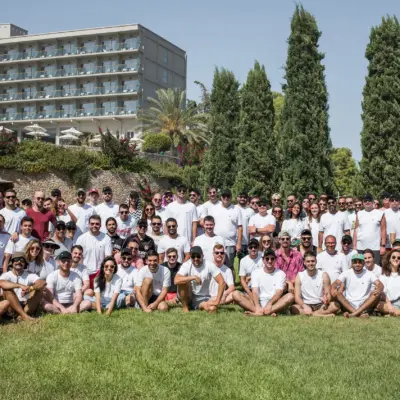The Tallinn-based ÄIO has now received €1 million to produce edible alternative oils and fats made from agricultural and wood sector byproducts that will contribute to a more sustainable food system.
The way we now eat needs to alter. Simply said, continuing to consume food as we currently do, cultivate food as we currently do, and perceive food as we currently do is no longer sustainable.
Food alternatives are currently being introduced to the market to make food supply chains and diets more sustainable, healthier, and environmentally friendly. Feeding our expanding population in the face of an escalating climate emergency has made the situation even more urgent.
A third of all greenhouse gas emissions are currently attributed to the food sector. Plant-based alternatives impact the environment even though they are less polluting than conventional cattle rearing. especially when it comes to various oil and fat products, the most notorious of which is palm oil.
Palm and coconut oils, which are utilized to create plant-based meat substitutes, do not have the same taste and texture as animal fat, as noted by ÄIO co-founder Nemailla Bonturi. These oils can also trigger allergic reactions, they are harmful, and their production is not sustainable.
The Tallinn-based company ÄIO offers a solution: turning agricultural and forestry waste into edible oils and fats. It might revolutionize everything because it is circular and sustainable.
Petri-Jaan Lahtvee, co-founder: “Plant-based meat also requires 47-99% less arable land, emits 30-90% fewer greenhouse gases, and uses 72-99% less water compared to livestock farming.”
After just being founded last year, the firm has now received €1 million from investors including Nordic Foodtech VC, EAS, and other partners.
“Turning low-value side-streams into something so lucrative is incredibly futureproof and has huge scalable commercial potential,” says Mika Kukkurainen, partner and founder of Nordic Foodtech VC. We are excited to be a part of ÄIO as it makes its first forays outside of the institution and is looking forward to supporting the group as they progress.
ÄIO, created its solution using research done at TalTech. The procedure involves converting industrial side-streams into food products through a fermentation process, comparable to brewing beer or baking bread with yeast, using a particular microbe. (named “red bug,” produced by Bonturi). Fats rich in protective antioxidants and good fatty acids are created during the fermentation process.
Bonturi: “We can transform sawdust or other low-value biomass into valuable and healthful components in the same way that we manufacture kombucha, yogurt, bread, and beer. Our “red bug” can transform sawdust into food but not water into wine.
The biotech innovators are gearing up for rapid scaling because they believe their idea could prove to be a potent remedy for our food supply issue.
The team intends to expand its capacity for production, test products in conjunction with the food sector, and file for unique food approvals to enter the European market with the help of this new finance.
It intends to begin industrial-scale production by 2026. ÄIO’s RedOil can replace lubricants and surfactants made from petroleum or palm oil in cosmetics and home cleaners.
Petri-Jaan Lahtvee: “As scientists, we were thrilled that years of study led to a practical product that might completely transform the food sector and consumer experience. We are grateful to everyone who has helped make our success story possible, and we will keep developing the business and its goods with the help of our partners, the top investor, and the food sector. Additionally, we will keep working with TalTech to train the upcoming generation of bioengineers.
Image Credit: ÄIO





